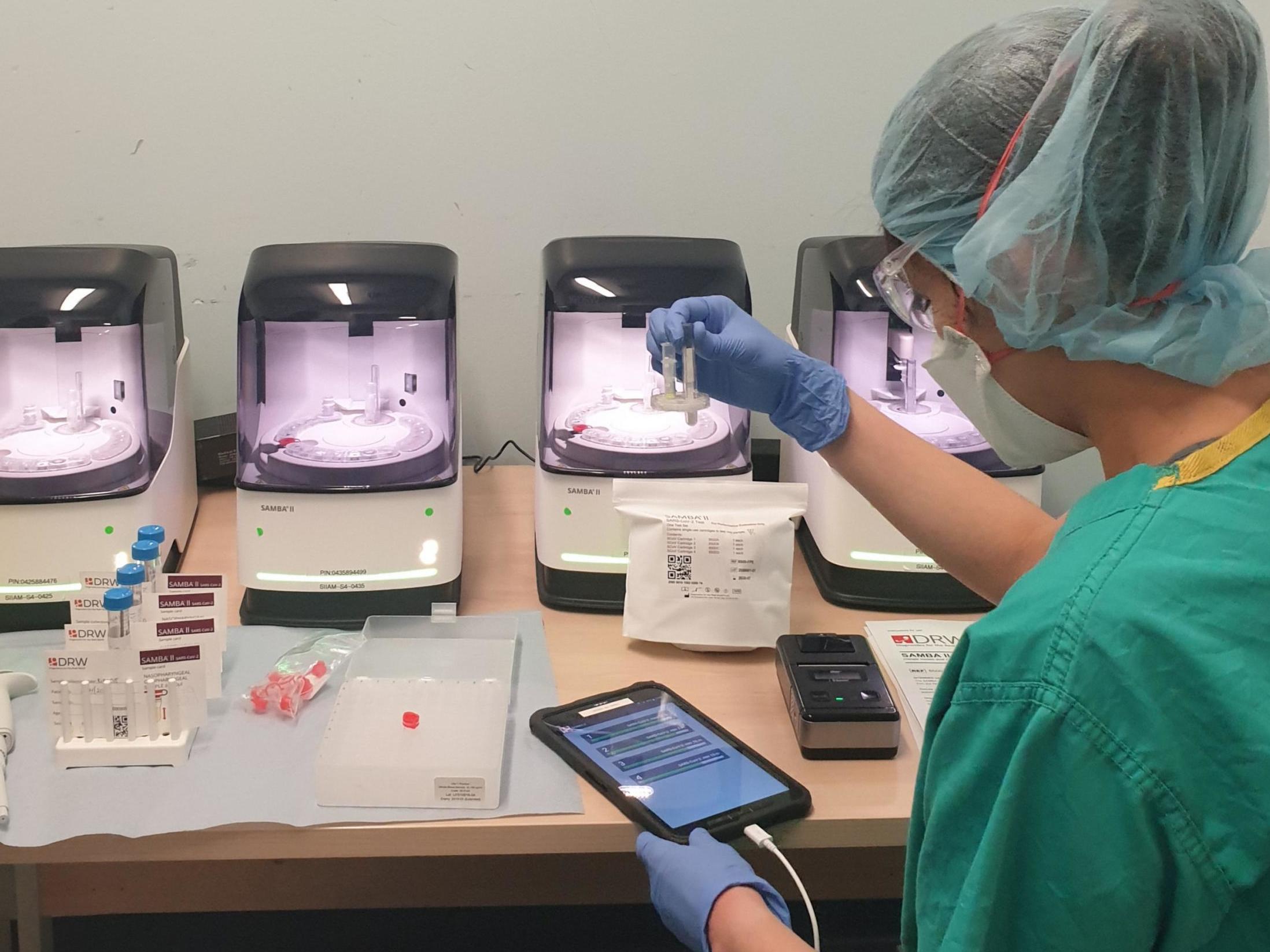New rapid coronavirus test dramatically reduces hospital stay time
Samba II devices ‘could make all the difference’ in freeing up hospital capacity, researchers say

Your support helps us to tell the story
From reproductive rights to climate change to Big Tech, The Independent is on the ground when the story is developing. Whether it's investigating the financials of Elon Musk's pro-Trump PAC or producing our latest documentary, 'The A Word', which shines a light on the American women fighting for reproductive rights, we know how important it is to parse out the facts from the messaging.
At such a critical moment in US history, we need reporters on the ground. Your donation allows us to keep sending journalists to speak to both sides of the story.
The Independent is trusted by Americans across the entire political spectrum. And unlike many other quality news outlets, we choose not to lock Americans out of our reporting and analysis with paywalls. We believe quality journalism should be available to everyone, paid for by those who can afford it.
Your support makes all the difference.A new rapid coronavirus testing device has been shown to reduce the average stay for patients on a Covid-19 holding ward at a UK hospital by almost half.
The Samba II portable machines can diagnose the virus in less than 90 minutes and have been trialled at Addenbrooke’s Hospital in Cambridge.
The average length of stay for patients on a coronavirus holding ward, before they were either discharged or could progress with treatment, fell from 58.5 hours to 30 hours, according to the Cambridge University study.
Researchers said the devices “could make all the difference” in freeing up hospital capacity as the NHS faces a mounting backlog of operations due to the pandemic.
The study’s lead author, Professor Ravi Gupta of the Cambridge Institute of Therapeutic Immunology and Infectious Diseases, said: “The backlog of routine operations and screenings as a result of the pandemic is a huge issue, and must be resolved ahead of winter, when the NHS will face even more pressure from other infections like norovirus and influenza.
“Rapidly testing admissions for Sars-CoV-2 at the point of care is essential for reducing Covid-19 transmission in hospitals, speeding up access to urgent care and allowing safe discharge to care homes.
“It could make all the difference in a few months’ time.
“Use of point-of-care testing would speed up the identification of patients for Covid-19 clinical trials, and receiving an experimental treatment a day earlier could make a clinical difference.
“Hospitals across the UK, as well as care homes and prisons, could benefit from Samba II devices.”
The machines look for tiny traces of the novel coronavirus’s genetic material in samples collected from nasal and throat swabs.
The fully automated process can deliver a diagnosis in less than 90 minutes, compared to standard tests, which are sent for analysis in central laboratories where backlogs can cause delays of two days or more, the researchers said.
Addenbrooke’s Hospital switched nearly all of its coronavirus testing from standard lab tests to the Samba machines in May.
Researchers compared data from electronic patient records of all those who had in-hospital tests in the 10 days before and then after the switch to the Samba machines.
An initial study with 149 participants correctly identified 96.9 per cent of people with the virus as positive cases, with a 99.1 per cent specificity — the ability to correctly identify negative cases.
Dr Ashley Shaw, medical director of Cambridge University Hospitals NHS Foundation Trust, said: “Point of care testing has been hugely beneficial in enabling our clinical teams to make well-informed and timely decisions, keeping patients and staff as safe as possible throughout this difficult period.”
The machines have been developed by a University of Cambridge spin-off company called Diagnostics for the Real World.
Join our commenting forum
Join thought-provoking conversations, follow other Independent readers and see their replies
Comments